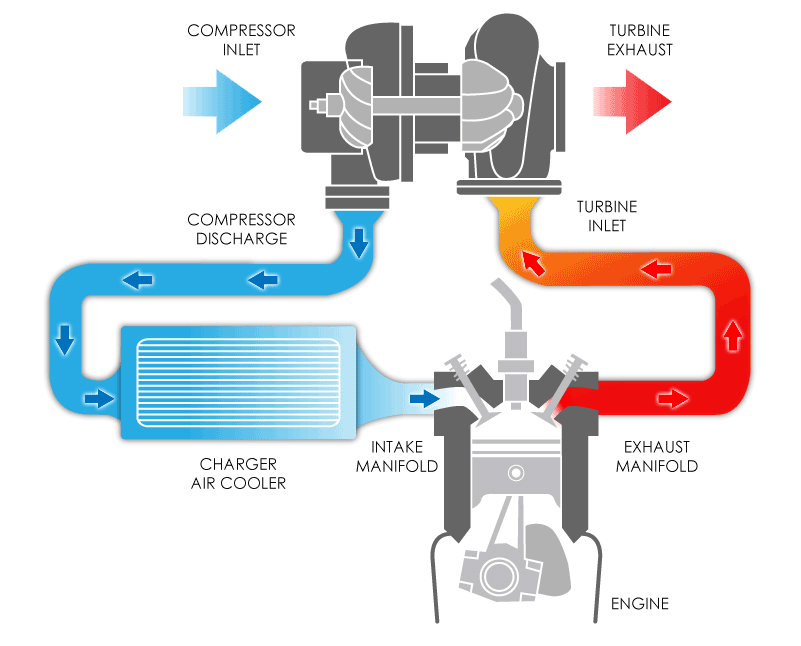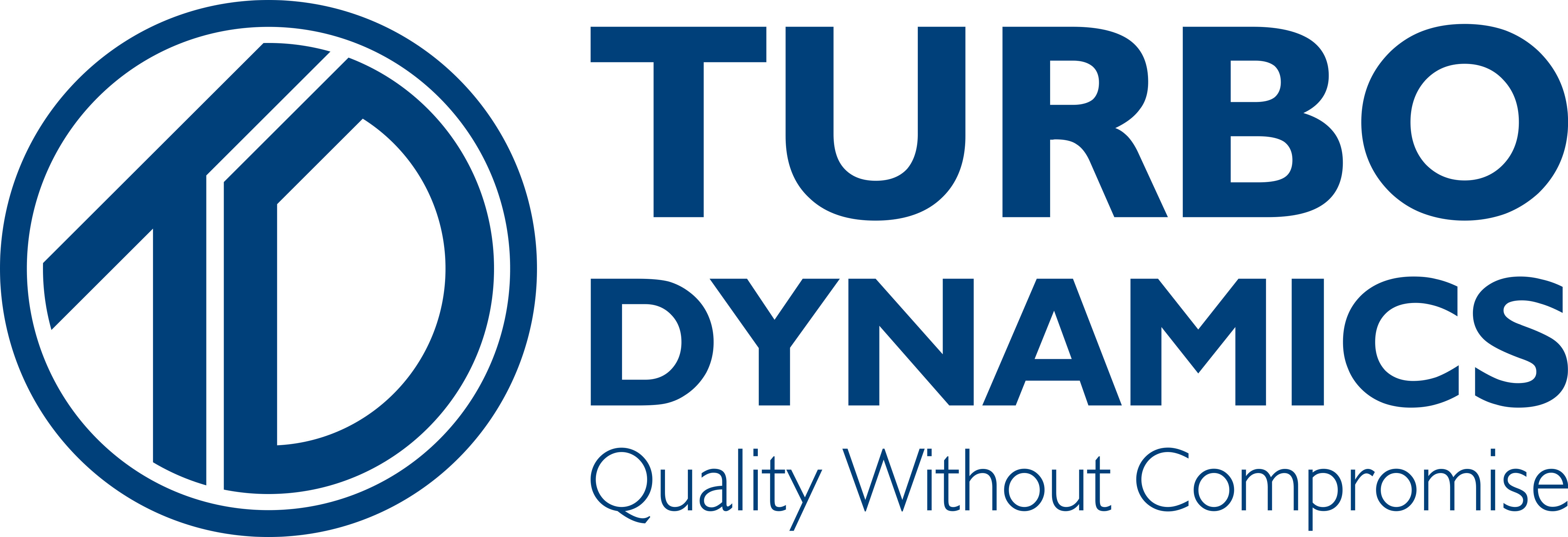
It’s one of the questions which occasionally comes up from time to time. Why do Turbochargers perform differently when it comes to temperature and the time of year?
Customers tend to notice drops in performance on hot summer days when comparing it to cooler spring and autumn nights. Whilst this is a common trait amongst all turbocharged vehicles, there isn’t anything to worry too much about. So in this blog post, we’ll take a look at why turbochargers produce less power in hot weather and what you can do about it.
How Does A Turbocharger Work?
First, we need to go back to basics here before we explain why turbos perform better at lower temperatures. To learn more about Turbochargers and how they work click here.

To summarise, the waste exhaust gases of the engine are utilised to drive a turbine wheel, which is connected to a compressor wheel by a shaft.
The compressor wheel sucks in air through the air filter and passes this into the engine. As the waste gases are expelled from the engine, they are directed to the turbine or hot wheel of the turbo and so completes the cycle.
What Happens To The Temperature & Air Density?
As air temperature increases the density of the air, and the amount of oxygen it holds, decreases. This means that the turbocharger has to work harder, spin faster and compress more air to produce the same amount of boost it would at lower temperatures.
As the temperatures inside the turbocharge gets higher, the turbocharger can no longer increase its speed efficiently, meaning that the knock-on effect of this is that engine performance, acceleration and top speed are also reduced.
In addition, hotter air also has a secondary effect on the turbocharger, by naturally increasing the operating temperature inside the turbo. Usually, the intercooler works to cool the air from the hot air intake, but in warmer temperatures, the intercooler becomes less efficient, as it is also exposed to the warmer temperatures.
Again, this serves to increase the amount of work the turbo has to do, reducing the overall efficiency and performance of your vehicle’s engine.
How Can I Tackle Weather Performance Drops?
For most people, the drop in turbocharger performance during hot weather won’t be a problem. On most modern turbocharged vehicles, the drop in performance is relatively insignificant, thanks to improvements in the air intake, intercooler and air filtration technology.
However, on performance, enthusiast and race vehicles, there are a few steps you can take to improve hot weather performance:
• Fit a larger turbocharger: as it will provide better airflow under all temperatures and conditions.
• Replace your intercooler with a more efficient model: reducing charged air temperatures and improving overall performance.
• Fit a cold air intake to your engine: meaning that colder, denser air is brought into the turbocharger.
• Fit a larger air intake: increasing the amount of air available to your turbo.
• Replace your air filter: to ensure that it is clean and free-flowing.
• Fit a water or methanol injection system: which can be used to cool either the intake air or the charged air. Use premium, higher octane fuels during the summer months to compensate for the drop in performance.
How Can Turbo Dynamics Help?
We can help with any of the problems above to increase the power output of your engine. For technical expert advice of any aspect of turbocharging from servicing to repairs or any general enquiries, contact us today on 01202 487497 or send us a message here.
